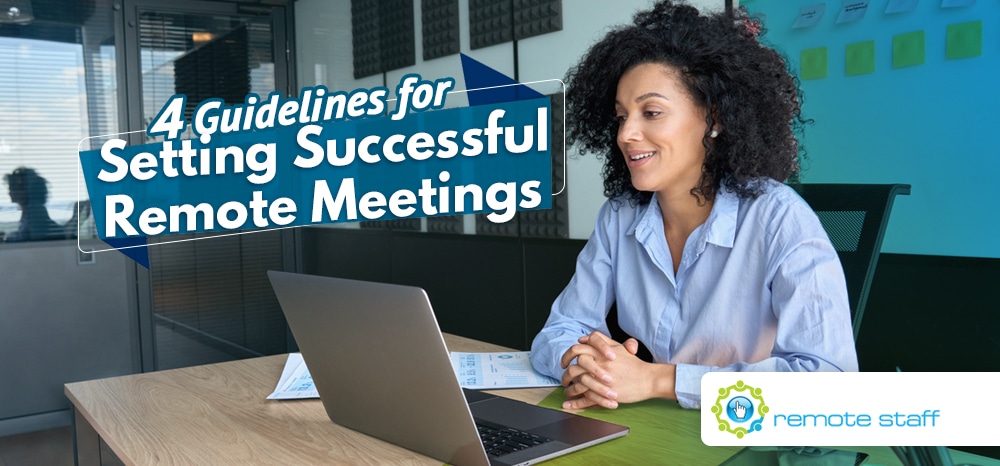Most people dread the thought of sitting in hour-long meetings, especially if these happen every day. Well, who can blame them? Anyone forced to attend and listen to endless announcements and reminders would feel bored.
In fact, poorly run meetings negatively impact a team’s overall productivity and success. Yet only 50% are considered effective out of all meetings conducted by employers. Sadly, this number has dropped even lower now that we’re mostly relying on remote meetings.
Despite these, we can’t really avoid holding meetings either, especially virtual ones. So, for the sake of our dear readers and clients, we’ve come up with guidelines for organising more effective remote meetings.
Let’s take a look.
Adopt a Stewardship Mindset

This helps you become intentional and deliberate in your approach. Staff members would appreciate a decisive leader in just about every situation.
For example, one of the best things that you can do as a leader is to identify and lay down all the necessary key points before a meeting starts. What will you talk about? How many points are you going to discuss? How long should the meeting last?
Answering these basic questions will help you streamline your agenda and make better use of the allotted time. That way, you won’t waste time waffling about before getting to the point.
Stick To The Essentials

Zoom fatigue is real, especially now. Sure, remote employers might feel the need to hold regular video calls to keep tabs on their teams. However, this might backfire especially if most of the calls turn out to be neither urgent or necessary.
So, how do you avoid this? First things first. Don’t over invite. More people might mean more ideas, but let’s face it. The more people there are on the call, the more difficult it is to actually engage with them. Instead, invite only the most important stakeholders.
Secondly, don’t allocate too much time. Forget two-hour meetings that go nowhere. Rather, keep things under 25-30 minutes. Think quality (of discussions), not quantity (of time spent on such).
Manage Productivity

Speaking of time, aim to start and end any meeting on time. Constant 15-minute delays will low-key stress out and annoy your teams. If you’re the presenter, log in five to 10 minutes beforehand to ensure that your technical set-up is good to go.
It might also be a good idea to keep your emotions in check. The situation is far from ideal at the moment, but try your best to welcome your team members warmly. A sour mood quickly spreads and is rarely every conducive to a good outcome.
End Things On A High Note

No matter how badly a meeting went, always try to end it on a positive note. Thank your staff for making time and perhaps ask for their feedback on what to do better next time.
It’s also a good idea to wrap things up with a quick summary. You can simply quickly run through all the points discussed and how these were addressed. If certain issues remain unresolved, draw up a quick plan for tackling those as well, should there be time.
Remote meetings can sometimes feel like a poor substitute for face-to-face interactions. But that doesn’t mean it’s not possible to make their outcomes more successful and productive.
Research says that remote work is here to stay, and it’s always best to adapt. Remote Staff has been providing AU SMEs and entrepreneurs like you with skilled Filipino remote workers for the past 14 years and counting. Whether you need a virtual assistant to help you keep track of your meetings or want to build a whole new remote department, we’ve got you covered.
Call us today or schedule a call back so we can get started.
Serena has been working remotely and writing content for the better part of the last decade. To date, she's written for Pepper.ph and Mabuhay Magazine, among others, and has churned out more than a thousand articles on everything from The Basics of Stock Market Investing to How to Make Milk Tea-Flavored Taho at home. Hermits, aspiring hermits, and non-hermits with interesting project propositions may email her at serena.estrella10@gmail.com.





















